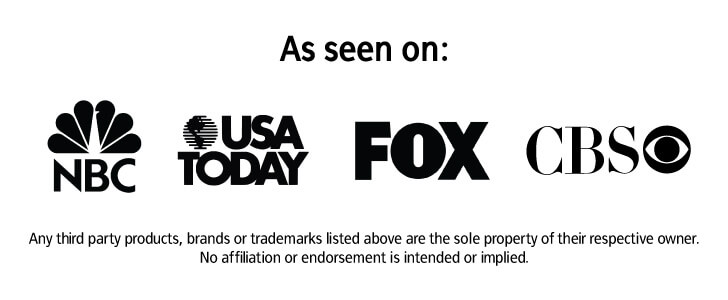Justice as How Someone Sees You
Justice as someone seeing you profoundly shapes the view that people have in terms of fairness and equity. Each time there is an idea of Justice with the particular lens that someone else wears, one can actually start unravelling the very complex tapestry of human relationships and interactions. The concept of Justice as how someone sees you is not solely a legal aspect but is really deeply psychologically and emotionally related to those things that regulate human beings on a day-to-day basis.
It all begins with an understanding that life experiences, cultural background, and personal values mould the definition of fairness for every individual. Each person's view about Justice is unique; hence, it creates a variety of interpretations over the same issue, which, to one person, may seem just, yet to another, may appear as an injustice. These perceptions are dynamic and play a vital role in shaping the way we negotiate our personal and professional relationships.
Justice as How Someone Sees You, in modern times, has become increasingly applicable in our daily interactions with people from various walks of life and belief systems. The diversity of perspectives pushes us to broaden our understanding of Justice beyond our experiences. Interacting with such a myriad of viewpoints shows us that Justice is a relative thing that flows and changes from culture to culture, person to person.
When we open ourselves to Justice as how someone sees Us, we open ourselves to greater empathy and understanding. This awareness makes it possible for us to bridge gaps in communication and build better relations with people. Recognizing that each person's view about Justice is valid within their context, we can work toward environments that are more inclusive and equitable.
Justice as How Someone Sees You is crucial because, through it, we can better work out strategies for conflict resolution and relationship building. It invites us to step out of our biases and try to see how others may perceive situations differently. Such awareness is crucial for maintaining healthy relationships and creating positive social change.
Understanding Justice in Personal Perception
The way people develop their unique views about fairness and equity. As we started to explore how different people make sense of Justice, patterns emerged through their personal history, cultural backgrounds, and lived experiences. This knowledge becomes important in knowing how to relate and build bridges among diverse perspectives.
The way we perceive Justice often emanates from our earliest experiences of fairness and unfairness. These foundational moments shape our understanding and create lasting impressions that influence how we interpret similar situations throughout our lives. Understanding Justice in personal perception helps us recognize why people might react differently to the same problem.
The deeper we delve into the personal perceptions of Justice, the more we realize that cultural influences have a lot to do with such views. The aspect of Justice in different societies can be retributive or restorative, hence providing an array of meanings that reflect the diversity of our global community.
This understanding is invaluable in conflict resolution or relationship building across cultural divides. Recognizing that the sense of Justice for each of us is deeply embedded in our personal and cultural contexts will help us navigate disagreements with more empathy and wisdom.
The Subjectivity of Justice
The Subjectivity of Justice evidences various ways in which individuals interpret and experience fairness in everyday life. The topic of Justice thus evolves from an absolute form into what has been shaped in the human mind through belief systems, emotional responses, and individual experiences.
Working within the theoretical framework of The Subjectivity of Justice, one can easily see that justice principles are often built around emotional responses. What one person feels is fair may seem an injustice to another; the outcomes and delivery can depend on their emotional reason for making these judgments, plus their personal value system.
Life experiences constantly mould and refashion our comprehension of Justice from the journey through life. Events in life form some sort of sieve through which we view other conditions, thus directing our responses and judgments to be decidedly different from others.
This subjectivity now manifests itself practically in situations that we go through every day-from disputes in the workplace to family disputes. This concept of subjective aspects helps us face conflicts more vigilantly and flexibly to find solutions.
The Impact of Perception on Relationships
How our perception of Justice influences our relationships with others. Differences in people's perceptions of what is fair may be the strength or strain in their relationships, depending on how they work through them.
Professional relationships, where The Impact of Perception on Relationships is felt when team members bring different perceptions about fairness into their interactions. This can affect collaboration, decisions, and workplace harmony in general and should be constructively addressed.
First of all, seeing the perspective of Justice through the eyes of another requires a good dose of empathy and the ability to change one's perspective. This ability for understanding is crucial in maintaining healthy relationships and navigating conflict.
The key to managing these differences is open communication and respect for the differences in viewpoints. If people can learn to acknowledge and understand different perceptions of Justice, they can develop more resilient relationships.
Justice and Social Dynamics
Justice and Social Dynamics explores how collective views of society shape our understanding of fairness. Conformity to social norms, media influence, and cultural values create a framework through which we interpret Justice and apply it in personal and community relationships.
The role of media in shaping Justice and Social Dynamics cannot be minimized. News coverage, social media discussions, and entertainment feed into the ways society conceptualizes and talks about Justice, often in both overt and insidious ways.
Today's social movements serve as a perfect example of how collective thought about Justice has evolved. Societies in transition, with diverse values and changing perspectives, work to constantly create and shift a commonly held conception of what is meant by Justice.
These social forces establish a bidirectional dynamic where individual and aggregate conceptions of Justice feed one another both as causes and as effects.
Can Perception of Justice Be Changed?
The question is whether or not our view of what is fair and just can be altered through experience and argumentation. Deep-seated conceptions of Justice are not easily changed, but some things can help us to see others' points of view.
Education and exposure to diverse perspectives play crucial roles in answering whether the perception of Justice Can Be Changed. When individuals encounter different cultural approaches to Justice and fairness, they often develop more nuanced and inclusive views.
The process of changing justice perceptions requires patience, openness, and willingness to challenge our assumptions. Through meaningful dialogue and shared experiences, people can develop more comprehensive and empathetic understandings of Justice.
Building bridges among all these differing ideas of Justice creates safe spaces for honest discussions and mutual understanding. It is a process that fosters an appreciation of multiple perspectives without one having to give up their sense of what feels right and just.
How does personal experience influence someone's perception of Justice?
Personal experiences shape our understanding of Justice through past interactions, cultural upbringing, and emotional responses to various situations. These experiences create a unique lens through which we interpret fairness and equity in our daily lives.
Can different cultural backgrounds lead to conflicting views of Justice?
Yes, cultural backgrounds significantly influence how people perceive Justice. What's considered fair in one culture might be viewed differently in another, leading to potential misunderstandings and requiring open dialogue for resolution.
How can we bridge gaps between different perceptions of Justice?
Building bridges between different justice perceptions requires active listening, empathy, and willingness to understand other viewpoints. Open communication and respect for diverse perspectives are essential for finding common ground.
What role does media play in shaping our understanding of Justice?
Media influences justice perceptions by highlighting certain narratives, shaping public opinion, and presenting various interpretations of fairness. This impact can either bridge or widen gaps in understanding between different groups.
How can organizations ensure fair treatment when perceptions of Justice vary?
Organizations can promote fair treatment by establishing clear policies, encouraging open dialogue, and considering diverse perspectives in decision-making processes. Regular feedback and inclusive practices help address varying justice perceptions.
Our exploration of Justice perception reveals its profound impact on relationships, society, and personal growth. Understanding how others view Justice enables us to build stronger connections and create more inclusive communities. As we continue to navigate an increasingly interconnected world, the ability to appreciate and work with diverse perspectives on Justice becomes ever more crucial.
This journey through different aspects of justice perception demonstrates that while our views may differ, finding common ground is possible through empathy, communication, and mutual respect. By remaining open to different perspectives and working to understand various viewpoints, we can create more harmonious relationships and societies.
Author
Sage Aurora
Helping you find peace and purpose
Welcome to my profile! I'm Sage Aurora, a spiritual guide and intuitive healer. My gifts allow me to connect deeply with energies from the other side, receiving messages from loved ones who have passed, as well as from Spirit Guides, Angels, and other higher beings. Through energy readings, I can tune into your vibrations and deliver clear, meaningful insights that support your journey. I'm compassionate, approachable, and committed to offering accurate, empowering guidance. Magic is all around us, and I'm here to help you tap into it. My mission is to provide you with the clarity you need to move forward with confidence. Trust me—I'm here to help you grow, heal, and understand your path.
















